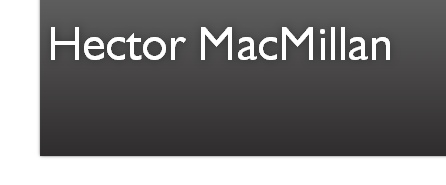The Ballad of Harvey's Dyke
Commissioned and directed by Gordon Emslie, BBC Radio Scotland. Broadcast 1973.
In the first decade of the 19th century "Lang" Tam Harvey was a humble horse-and-cart
man. By the end of the second decade he was one of the wealthiest of Glasgow's nouveaux
riches; to be seen in his own box at the theatre or lum-hatted in the grand coach
carrying him to and from the rural estate he had purchased at Belvedere, to the east
of the city centre. A whisky distillery at Port Dundas and a string of taverns in
the city [Harvey's "Divans"] had worked the transformation. Tam's subsequent reversion
from riches back to rags arose out of his desire to own the land of Belvedere right
down into the waters of the River Clyde itself.
A right-of-way along the riverbank, from the villages of Tollcross and Parkhead to
the city centre, had existed from time immemorial. Tam, now not desiring even distant
sight of the hoi-polloi, had it cut off at his estate by a stone dyke built right
down into the water. Coalminers from the two villages most affected used picks and
crowbars to demolish the dyke. The dyke was rebuilt, bigger and stronger, with broken
glass embedded in the coping. This time the coalminers used gunpowder to re-open
the right-of-way. Tam Harvey's friends in high places called in the cavalry.
A company of Enniskillen Dragoons, billeted in the city, had no option but to obey
orders. They duly arrested the ringleaders. The Irishmen, however, were probably
showing their true feelings when they raised their helmets and cheered the prisoners
into the Tolbooth. From that out, matters could only escalate.
With funds generated by a public fair in Glasgow's Saltmarket, radical lawyers fought
Tam Harvey to the highest courts in the land. They finally had to take their case
to the highest court of all, the House of Lords, but they won there and Tam Harvey's
Dyke was demolished for the last time.
That fiercely defended right-of-way now forms an essential part of the city’s River
Walkway.
The play made use of specially-written songs to help the story along and Gordon Emslie's
production again featured The McCalmans folk group.
Repeat broadcast 1979.


